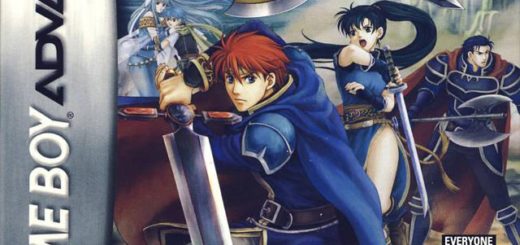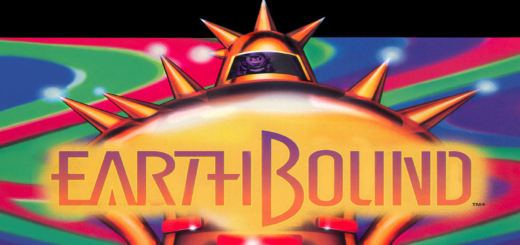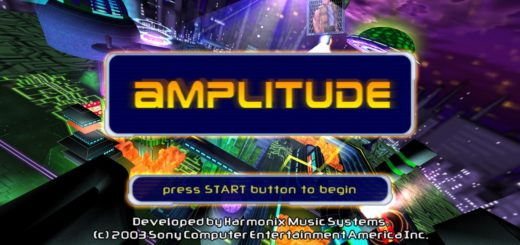Classic Callback: FINAL FANTASY XII
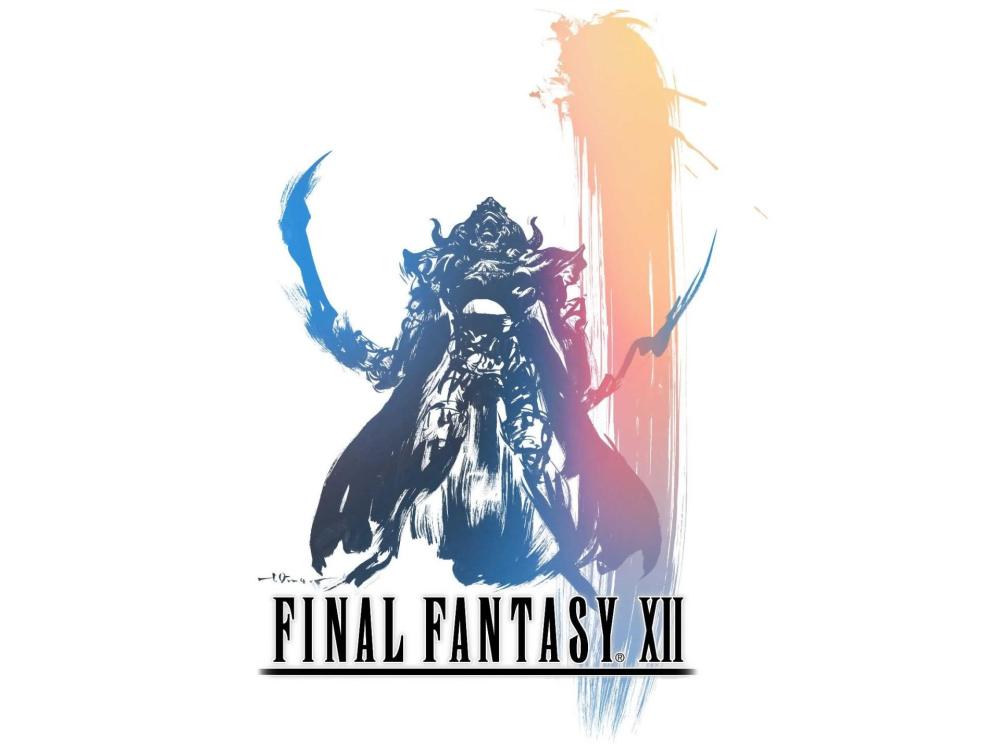
“Oh, more Final Fantasy.” That was the kind of the mindset I expect a lot of people had in relation to this game’s release. It’s also what I imagine anyone reading this is thinking after seeing another article from me about a Final Fantasy game. Snark aside, FINAL FANTASY XII got kind of a mixed reception back when it debuted in 2006 on the PS2, but has since garnered some decade-late praise from the remaster, released back in July for the PS4. That being said, it’s still considered a black sheep amongst the main games when compared to most of its Final Fantasy brethren. It’s nowhere near the most frowned-upon of the franchise (that honor is almost unanimously bestowed upon FINAL FANTASY XIII), yet it made enough changes to the Final Fantasy formula, especially when it comes to combat and how the world is experienced, that it had some questioning its pedigree.
I like equating FINAL FANTASY XII to an experimental little brother; it sees what its older siblings did and messes around with some stuff, trying to make himself “different” and stand out while also keeping enough to say, “Hey, I’m still part of the family.” Ultimately, the end product of that was and still is very strong in both gameplay and narrative, even after changing up an established formula and straying from the same-olds of previous installments. That’s at least one thing I can really commend FINAL FANTASY XII for, enough for me to make it my second-favorite Final Fantasy game behind FINAL FANTASY X. Granted, it still ended up paving the way for FINAL FANTASY XIII to show up and muddy the brand, but I digress.

The chocofro may be the only thing good thing to come out of FFXIII
FINAL FANTASY XII made a number of changes to how combat and the overworld of the game are experienced from previous titles in the franchise. It’s also probably the only time a Final Fantasy game got someone (namely me) to be invested in the combat equally as much as the story. There are some definite broader shifts, like opting for an open world and real-time combat in lieu of random encounters. But the real defining feature for the game’s combat, all things considered, is the Gambit System. Essentially, the game provides a way to program and customize all your party members to react to situations during battle using “If X, then Y” lines of logic, like attacking the nearest possible enemy or using a Potion when an ally is under 50% health. It’s also not just a “setup once, never touch again” kind of situation, either. Tweaking each of your character’s gambits is mandatory for continued success throughout the game and, while basic at the start, quickly becomes deeply involved and where you’ll be spending most of your strategic brainpower.
Even 11 years after initially playing it, I have yet to find a combat system in an RPG that matches the structure and sophistication the Gambit System provides, or one that can work without turning your party’s AI into either overpowered gods or complete imbeciles. There’s just this undeniable sense of satisfaction in fine-tuning your party’s varied skills and gambit functions in such a manner that you can effectively move the analog stick and just watch your posse of wayfaring warriors slaughter every little innocent cactus or weird ball-chicken creature in sight, like a well-oiled murder machine. And owing it all to tactics you engrained into them, and spent hours of playtime perfecting.
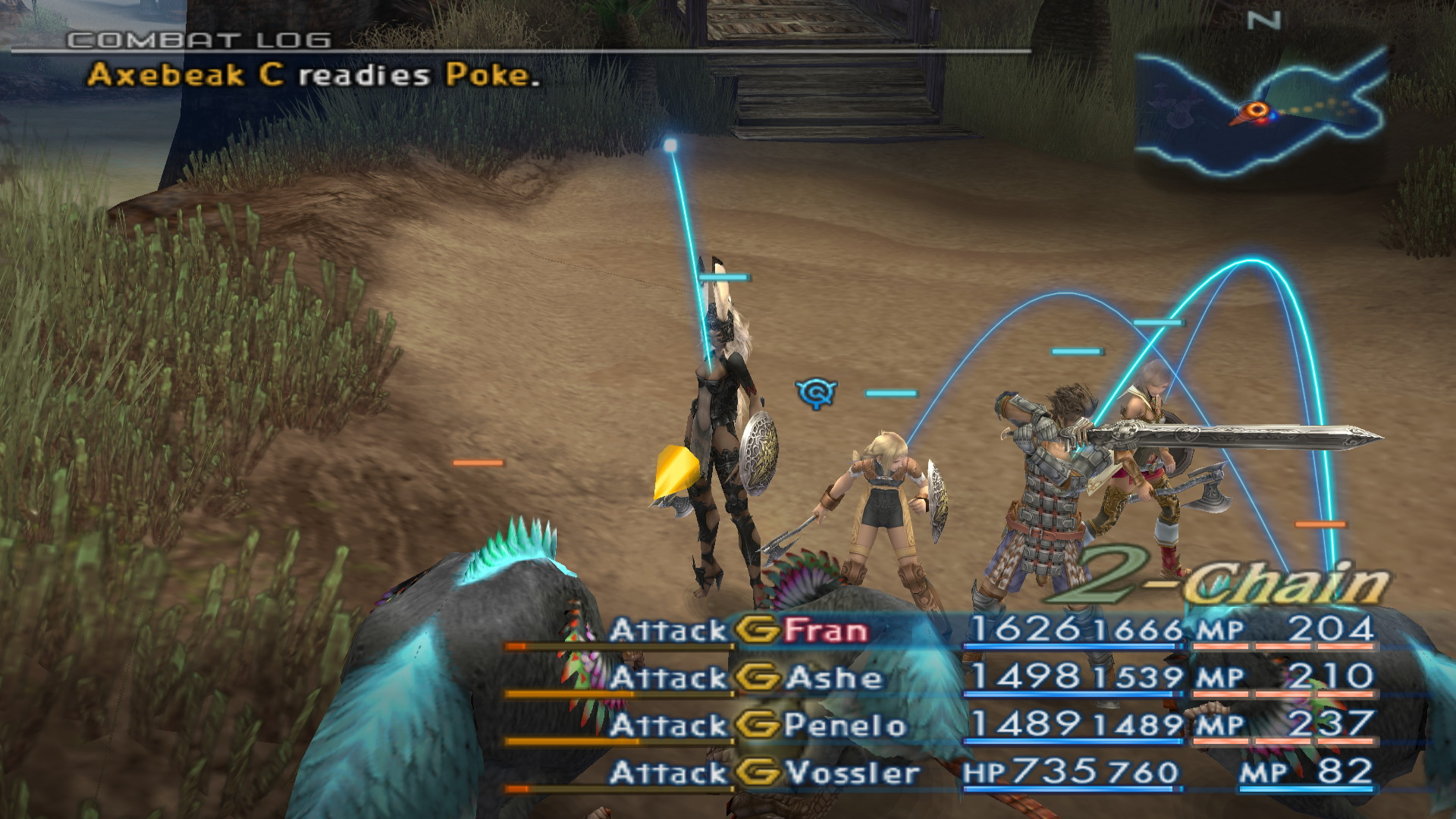
No ball-chicken is safe from my righteous fury
As much as I like the combat, though, the narrative elements are my bread and butter for most games, RPGs or otherwise. So, what’s the story with FFXII? A whole lot like the original Star Wars movies, evidently. Swaths of the Final Fantasy community have poked fun at FFXII over the years due to having a number of parallels to the original Star Wars trilogy, be it the main conflict surrounding a domineering Empire trying to suppress a Resistance, the cast including a deposed princess leading the Resistance, a charismatic outlaw that owns a flying vehicle, an anthropomorphic companion for said outlaw, a guy clad in full body armor that serves a power-hungry emperor and who has a relationship with one of the protagonists, et cetera.
While base similarities like these exist, that isn’t necessarily grounds to say the characters aren’t unique or well written (mostly), or that the story isn’t original just because of the Resistance/Empire conflict. To quote Christopher Woodard, “FFXII is as much ‘Star Wars with flowery language and Moogles’ as Star Wars is ‘just THE HIDDEN FORTRESS crossed with BUCK ROGERS.’”
The characters, as far as I’m concerned, are all as well-written as they come and are, to condense it down to one word, “charming.” There are no bit parts to be played, and every character, be they main cast or general NPC, has a unique flavor to them that makes every conversation and interaction amusing. And while some of the main party are not as strong as others (*cough* Vaan a.k.a. Discount Tidus *cough*), those characters’ stories help to set the general themes of the game and give its narrative focus. This is especially true with the characters of Ashe, Basch, and Balthier, whose individual stories and evolutions I’d argue make them the true “main characters” and focus of the story. Or, as Balthier would call himself, the true “leading man.”
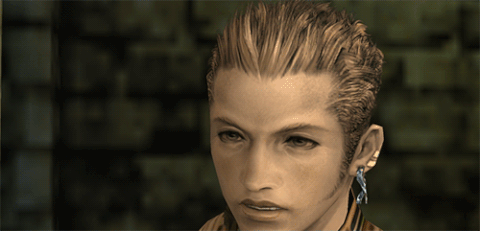
Just look at this smug asshole
Likewise,the worldscape is also something worth observing. The world of Ivalice, while it does take advantage of a timeless fantasy vibe, takes a surprisingly large amount of inspiration for its lore and locales from Indian and Arabic cultures, be it the architecture, mythology, and dialects, with the only real exceptions being the prolifically-English-based Archadian Empire. It’s not something that’ll make or break the game for people, but as someone who’s part-Arab and doesn’t see this kind of focus in other games, let alone a Final Fantasy game, it’s a welcome little bit of inclusion and makes the world seem that much more interesting and “exotic.” At least more so than your standard medieval European-based fare.
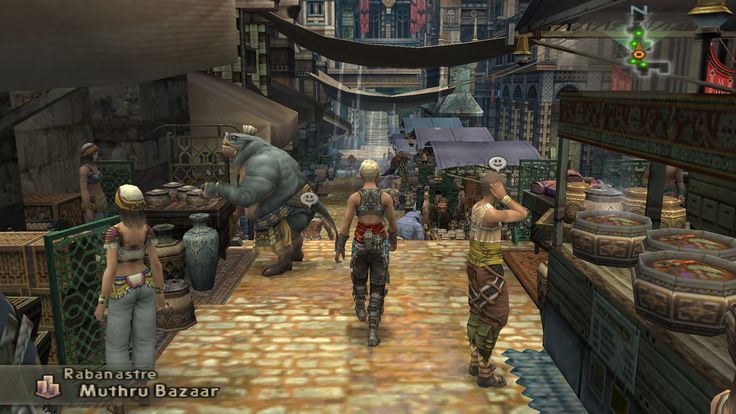
Nothing witty to say, I just think it looks nice
While the world and its inhabitants are all well-crafted, what really brings it all together are the themes. While previous games in the franchise have had some sort of element marring the manipulative nature of organized religion or zealotry, FINAL FANTASY XII’s world doesn’t explicitly seem to have one. There’s obviously magic and mysticism at play in Ivalice, and some incorporations of spiritualism, but there are no explicit gods or religious practice like there was in, say, FINAL FANTASY X. The only real mention of gods for the majority of the game is from the dominating Archadian Empire, who seek to “put the reins of history back in the hands of Man.” Effectively, the entirety of the plot of the game, as well as the motivation for both the villains and the protagonists, is to achieve some level of freedom: over their lives, their homes, and their actions.
Each member of the cast wrestles with this sense of agency in a potentially-godless world, trying to grasp at some form of freedom that has been taken from them by a higher authority or circumstance. And this comes at varying degrees of success, given the war the Archadian Empire wages has taken just as many lives as those it seeks to liberate. You get a surprisingly amount of varying perspective from the world’s inhabitants, be they the subjugated citizens of Dalmasca, the domineering Empire, the spiritually-inclined Kilitas, or the slew of nonhuman inhabitants in the world of Ivalice. Ultimately, the game takes a very humanist approach to its narrative that, at least for me, is something that elevates it past most. Or maybe I’m just looking too deeply into it, I dunno.
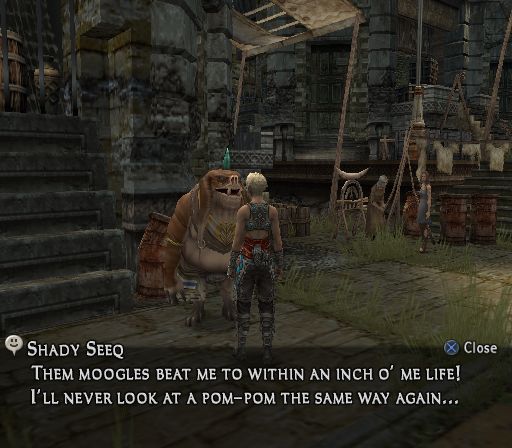
Pictured: Levity
All that being said, FINAL FANTASY XII is a gem that most missed out on due to its “black sheep” status at the time, but is a very well-crafted game, especially by today’s standards.The recent HD remaster actually improves on the game in a few ways other than just upped visuals and a reorchestrated soundtrack (both of which are beautiful, by the by). Probably the most notable feature added to the remastered version was the inclusion of a kind of “fast-forward” feature for combat that lets you speed up all the walking around the overworld and the combat, which I view as a tongue-in-cheek acknowledgement by the developers that not everyone is in it for the tedium. It’s a feature I abused basically the entire game, running basically at 2x at nearly all times, and even then I clocked in at least 100 hours before completing it once again, sidequests and all. Regardless of whether you play the original or the remaster, though, FINAL FANTASY XII is a strong entry in the franchise that tried a lot of new things and succeeds because of it, and is a game that definitely deserves any attention it gets.
FINAL FANTASY XII and its remaster FINAL FANTASY XII: THE ZODIAC AGE are available on the PlayStation 2 and the PlayStation 4, respectively.

